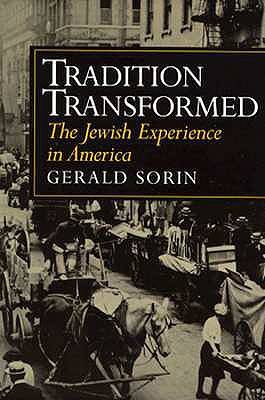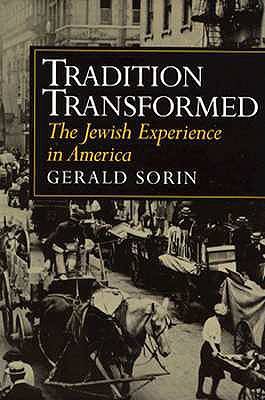
- Afhalen na 1 uur in een winkel met voorraad
- Gratis thuislevering in België vanaf € 30
- Ruim aanbod met 7 miljoen producten
- Afhalen na 1 uur in een winkel met voorraad
- Gratis thuislevering in België vanaf € 30
- Ruim aanbod met 7 miljoen producten
Omschrijving
Brings together all aspects of American Jewish history--the transformation of a people, their religion, their move into trade and commerce, their political commitments, and their contributions to education and culture.
Throughout American history, from the colonial era to the present, Jews have found America generally hospitable. Yet even in this relatively receptive country, which essentially replaced Israel as the "promised land," there have been vexing questions for Jews--questions about the costs of freedom and mobility, especially with regard to the erosion of Jewish tradition and distinctiveness.
In this one-volume history of the Jewish experience in America, Gerald Sorin argues that, from colonial times to the present, "acculturation" and not "assimilation" has best described the experience of Jewish Americans. American Jews, Sorin explains, have maintained their unique ethnic characteristics yet have become part of mainstream, middle-class American life. Sorin also shows how the large migration of Jews from Russia and Eastern Europe in the late nineteenth century made a lasting impact on how other Americans imagine, understand, and relate to Jewish Americans and their cultural contributions today.
Drawing together all aspects of American Jewish history, this concise volume deals with the transformation of a people, their religion, their move into trade and commerce, their political commitments domestically and internationally (especially after the Holocaust), and their contributions to education and culture.
Specificaties
Betrokkenen
- Auteur(s):
- Uitgeverij:
Inhoud
- Aantal bladzijden:
- 312
- Taal:
- Engels
- Reeks:
Eigenschappen
- Productcode (EAN):
- 9780801854477
- Verschijningsdatum:
- 18/04/1997
- Uitvoering:
- Paperback
- Formaat:
- Trade paperback (VS)
- Afmetingen:
- 153 mm x 228 mm
- Gewicht:
- 467 g

Alleen bij Standaard Boekhandel
Beoordelingen
We publiceren alleen reviews die voldoen aan de voorwaarden voor reviews. Bekijk onze voorwaarden voor reviews.











